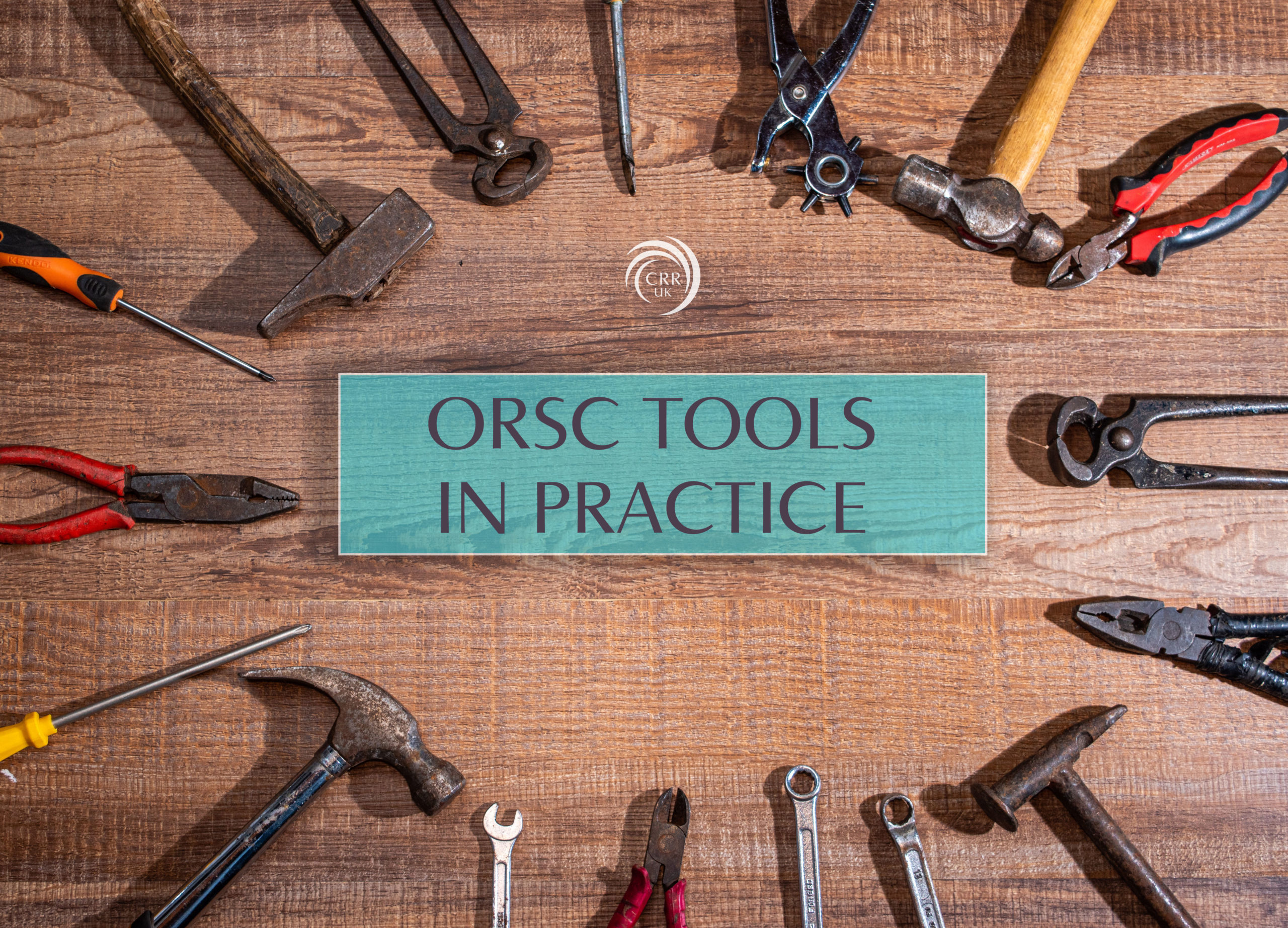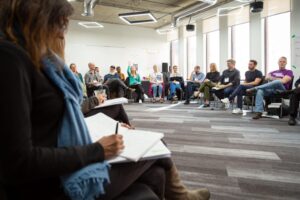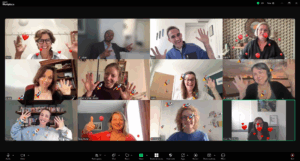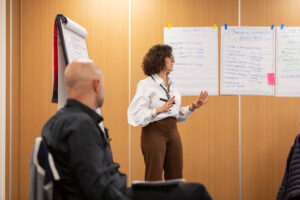Over the last few weeks, the CRR UK team have embarked on coaching sessions together to align us throughout various changes to the business. These changes include our website launch, the relaunch of in-person courses, team members moving on and new roles being created.
We were coached by the amazingly gifted Aluba Fenix, a Sales Leadership & Executive Coach. Aluba completed the ORSC Series with us in June 2019 and went on to complete ORSC Certification programme.
I had mixed feelings leading up to the first coaching session, including nerves, anticipation, and excitement. Although we are used to ORSC tools, this is the first time we’ve had an external ORSC coach facilitating the process.
ORSC tools in practice: this blog is an overview of some of the tools we used during our sessions and their impact. The exercises below were split between three coaching sessions.
We started each coaching session with breathing and grounding exercises to settle us into the session.

Exercise 1: Relationship Myth (ORSC Fundamentals)
This exercise reconnected us with what brought us together. I found this very uplifting, to share with the team what made me want to join CRR UK in the first place and hearing everyone else’s stories. We realised that whilst we all have different work and life backgrounds, we share a common passion and belief in the service we are providing. To me that felt incredibly special.
Exercise 2: Appreciation loop (ORSC Intelligence)
I remember first using this tool in the ORSC Virtual Intelligence course. ORSC courses are consciously designed to take participants on a journey, and this tool was introduced at the end of one of the days to help us finish on a positive note.
In our coaching session, we took it in turns to say what we appreciated about each other. It sounds simple, but the impact on the emotional field was incredible (once I got past the uncomfortableness of being complimented so directly.)

Exercise 3: Designing the Team Alliance (ORSC Fundamentals)
I have always found this tool immensely powerful. The first time I used it was shortly after I joined CRR UK in 2018. I had been experiencing some role confusion. My expectations of my role did not match with what the organisation expected me to do. The DTA was one of the tools that helped us work through this.
In our recent coaching session, we each described what we needed from each other, and this became our Designed Team Alliance. We would volunteer words such as “trust, honesty, playfulness etc, and take responsibility how we would create the space we wanted.
I have used this tool in other relationships in my life and it has proved extremely effective. I always leave a meeting that has included a DTA feeling more connected to the relationship, and with a sense of purpose.
Exercise 4: High Dream/Low Dream (ORSC Path)
This exercise was an emotional rollercoaster! We talked about what our high dream, or best-case scenario is, and then what our low dream/worst case scenario is for our team moving forward. This was quite a gloomy conversation, and the emotional field took a dramatic dive. However, it felt like an important conversation to have. We knew where we DIDN’T want to go as a team and as a business. The glumness we felt talking about that told me that the team is passionate about working towards our high dream and won’t accept falling into a rut without pulling ourselves out.

Exercise 5: Outer Roles (ORSC Geography)
This exercise was very enlightening. We talked about what our roles actually are, and who is accountable for what. It helped us to understand and define our outer roles (our more formal roles within the company, e.g marketing, administration etc.)
Exercise 6: Bringing Down the Vision (ORSC Path)
We then each drew how we’d describe our team in a visual metaphor. Interestingly, I and one of the directors drew the same metaphor which was an octopus. Each team member is a tentacle, moving about in swimming in different directions, whilst always connected by the head.

Exercise 7: Inner roles (ORSC Geography)
To understand more about our inner roles, we each took a strengths profile quiz to help us understand our “realised” strengths, “unrealised strengths”, “learned” strengths and weaknesses. We unfortunately ran out of time in our session to complete this exercise. Continuing would have involved talking about how we can leverage our strengths in the company, and mitigate using our weaknesses where possible. However, it was insightful to understand more about everybody’s strengths. This is something we will do at one of our weekly meetings.
Takeaway
Overall, I may be bias as the marketing manager of CRR UK, but I would thoroughly recommend
- using ORSC tools to help structure your team meetings, and
- investing in an external coach every few months or so to keep your team aligned and on track.
I have seen a noticeable difference in our team since we did this coaching. We are “closer”, more aligned, and clearer about our roles, needs, and challenges.
Having gone through this process, I would suggest allowing time with your team outside the coaching sessions to process and expand on the ORSC tools and exercises. It’s a great gift to continue to uncover who you are as a team!






